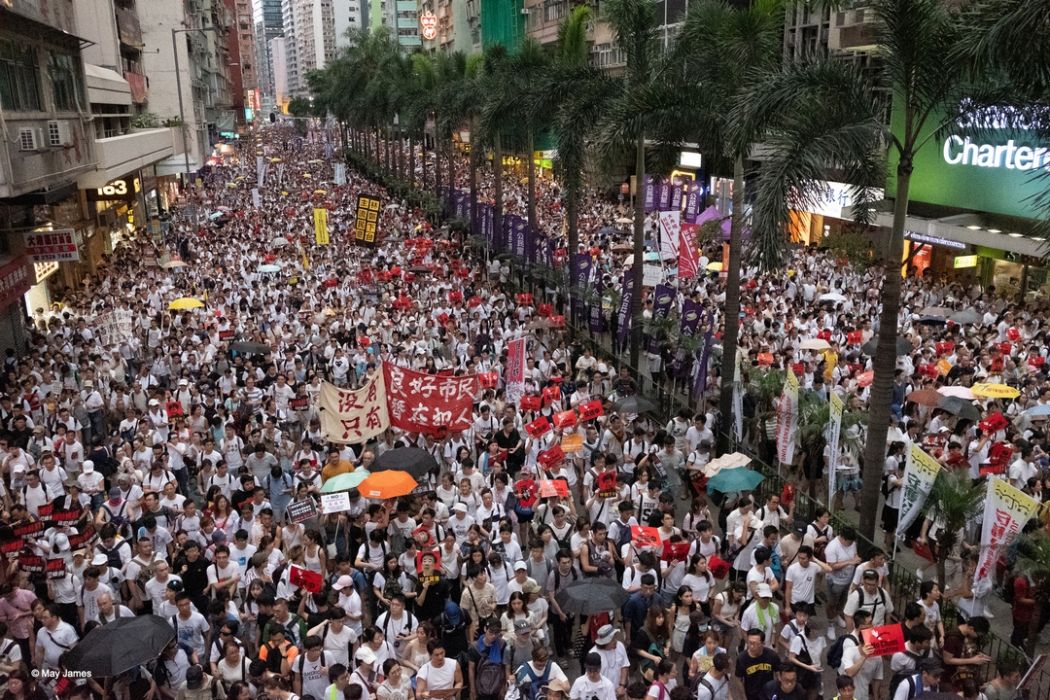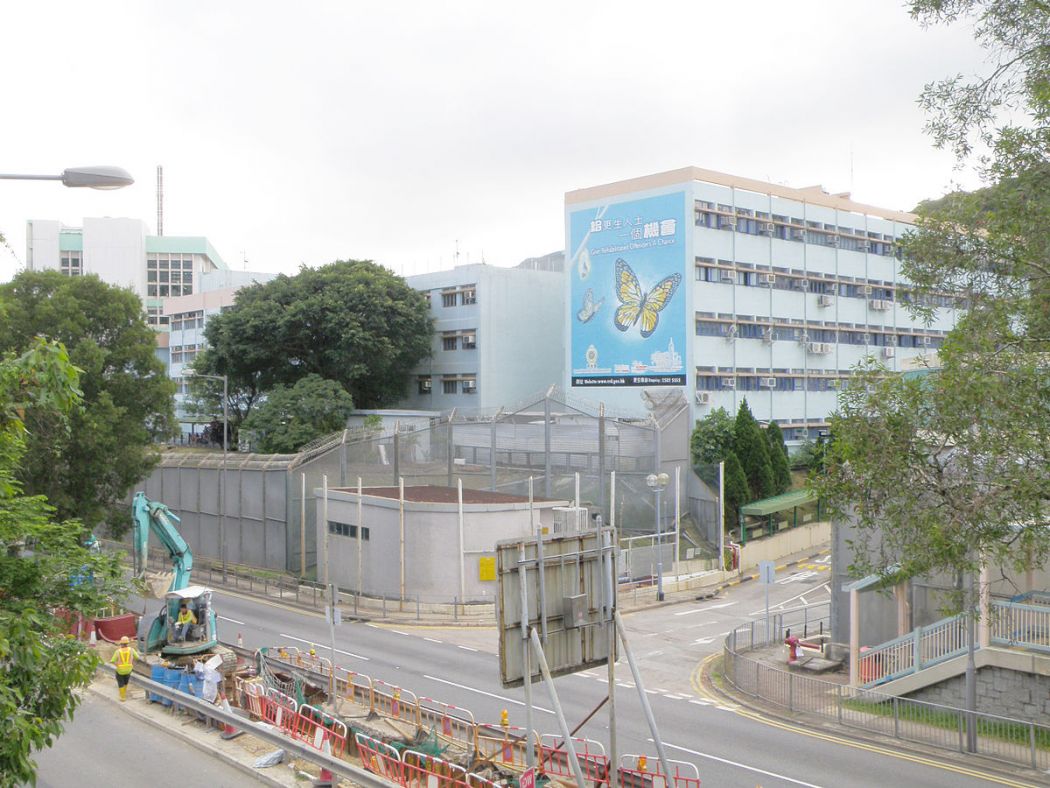When Tung Sheung-Lam left Shek Pik Prison last month after two years and eight months behind bars, he was not expecting a welcoming party.
But the 23-year-old was surprised by his parents, who picked him up and whisked him off to a yum cha restaurant, followed by a hotel staycation. Now he has leisure to reflect on his time behind bars.

Tung was arrested in October 2019 for possessing and manufacturing explosives in an apartment in Tai Kok Tsui, where police found potassium nitrate, petrol bombs and modified drones.
He was found guilty in September 2021 on three charges and sentenced to 48 months in prison, but was released in July after his time on remand was taken into consideration.
Before his arrest, Tung was a student, with occasional part-time gigs as a salesperson. He even joined the student organisations at his community college. When the summer of 2019 came around, Tung quickly found himself fully committed to the democratic cause.
After his first taste of tear gas, he became a full-time protester, leading to his fateful decision and subsequent imprisonment.

Looking back, Tung views his incarceration and the sudden transition back to freedom as a surreal experience. But overall, he does not see his period behind bars as a waste of time.
“Like everything else in life, there shouldn’t be regrets. I might even take the same path again since the people and experiences I encountered made me who I am now,” Tung said, adding that he had no intention to break the law.
He was one of thousands of youngsters detained during the months of sometimes violent protests. In all, 10,265 people have been arrested on various grounds. Of the 2,684 people charged, 1,197 people have been convicted, according to figures from the Security Bureau.
The Judiciary is still processing many cases.
Once out of prison, many former protesters face a very different city to the one they left behind. Since Beijing imposed the national security law in June 2020 – which criminalised subversion, secession, collusion with foreign forces and terrorist acts – traces of the protests have been virtually wiped out, and the authorities say it has restored stability and peace to the city.

Many pro-democracy activists and politicians are either facing charges or are already in jail. Others have fallen silent or have fled overseas.
Extending the nation’s love
Following the enactment of the security legislation, the political system was overhauled to offer a Beijing-friendly narrative in the form of a “patriots-only” legislature. Such changes have also impacted the younger generation.
For those behind bars, the Correctional Services Department has introduced a voluntary “deradicalisation” scheme aimed at youngsters incarcerated for protest-related offences. The scheme includes education on the security law to promote “law-abiding awareness”, with the hope of reducing the likelihood of recidivism by teaching Chinese history and traditional values.

While in prison, Tung volunteered to write a passage in the Correctional Services Department’s annual report about “family values and Chinese culture.” He said he kept the wording as neutral as possible and his decision was a bargaining ploy. “When you’re on your own, or if you have others inside to look after, you do what you must do,” he said.
When Chinese leader Xi Jinping visited the city to attend celebrations for the 25th anniversary of Hong Kong’s Handover from Britain to China, he extended an olive branch to Hong Kong’s youth. In a speech, Xi said that Hong Kong would “have a bright future only when its young people have good career prospects,” and urged authorities to prevent youth crime.
In turn, Police Commissioner Raymond Siu said that society should offer hope and “second chances” to convicted protesters, saying many had shown remorse.
Some ex-protesters see the proffered olive branch as insincere and say they are still stigmatised by society. A 23-year-old who goes by the name Ding and was released from prison two years ago told HKFP he could not open any bank accounts until very recently. He was not given a reason.
Ding, who asked to remain anonymous, said he felt that “second chances” did not come from the establishment but mainly from businesses sympathetic to their situation. He recalled receiving leaflets promoting the national security law but did not give them too much thought.
“They’ve always labelled us… even before the protests, we would have been called ‘political prisoners’,” said Ding. “At least I know I broke the law not because I am a criminal.”

Like Tung, Ding remains optimistic about life beyond bars despite now having a criminal record. Ding, who has since returned to his studies, has opened a Patreon page to share his views on Hong Kong and hopes to one day write a book.
“The whole experience is like a dream, but it is what it is. We must come to terms with it, do whatever we can, and influence the people around us,” he said.
Brotherhood by distress
For some, though, prison time brought its share of demons. A 20-year-old protester who used the pseudonym Sleep recalled witnessing occasional clashes between inmates in Pik Uk Correctional Institution.
Sleep told HKFP that some former protesters imprisoned there cosied up with the wardens or with triad members incarcerated in the same cell for protection, which he described as the “easy way out.”
“While some fellow prisoners bonded with me more easily, you were mostly on your own, and not everyone is benign, so you need to look after yourself,” said Sleep.

Sleep was not alone. What upset Tung most were the occasional betrayals by his supposed comrades behind bars in an environment fuelled with survival anxiety. Witch-hunts for “ghosts” – those suspected to be secretly working with the authorities or sabotaging the movement – could happen among protesters at any moment, Tung said.
“One misconception is that people inside are adamant about the cause – the reality is the opposite. There’s no heroism, and people inside just wanted to get out. We needed to watch our backs – not from the authorities but within our ranks,” he said.
Even as a veteran protester arrested during the 2014 Umbrella Movement, prison can be a shattering experience.
“The scariest thing about prison life is that it alters a person entirely without them realising it. I started reading, working out and studying, and fighting for myself,” Tung said.
During his time in custody, Tung met Tong Ying-Kit, the first person to be tried and found guilty under the national security law. They quickly became friends and watched each other’s backs as they were transferred to various institutions.
Tong Ying-Kit was convicted of terrorism and incitement to secession by a panel of appointed judges instead of a jury, a first in Hong Kong’s legal history.

A handwritten letter from Tong to Tung, seen by HKFP, depicts his bewilderment over the nine-year sentence under the national security law. Since his release, Tung has been paying close attention to and speaking out for his friend behind bars.
Additionally, Tung and some fellow former protesters are now working on a mobile game that depicts a battle between gods and humans which lays waste to civilisation. In the game, Hong Kong escapes this fate but extends authoritarian rule over survivors and becomes a target of the resistance.
The game remains in a rudimentary stage since the friends he recruited as programmers are still behind bars. He sees it as a long-term project.
“Someone has to do it. It’s nothing noble, but if you’re in the position, it’s your responsibility.”
Support HKFP | Policies & Ethics | Error/typo? | Contact Us | Newsletter | Transparency & Annual Report | Apps
Help safeguard press freedom & keep HKFP free for all readers by supporting our team

HKFP has an impartial stance, transparent funding, and balanced coverage guided by an Ethics Code and Corrections Policy.
Support press freedom & help us surpass 1,000 monthly Patrons: 100% independent, governed by an ethics code & not-for-profit.










